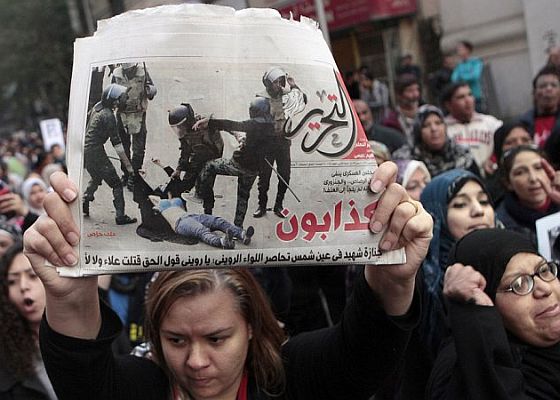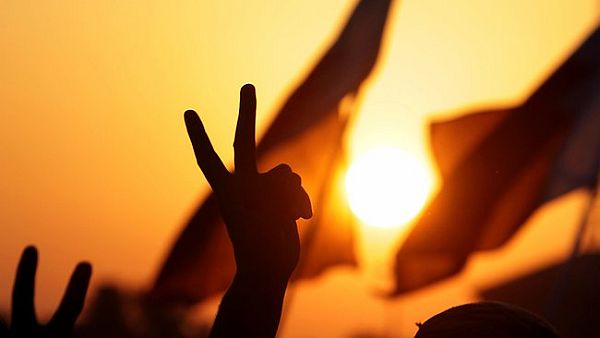The Washington Post reports: Buoyed by the success of Islamist movements in countries swept by the Arab Spring, Hamas, the militant Islamist group that rules the Gaza Strip, is showing signs of pragmatism as its sense of isolation fades.
The organization is jockeying to reposition itself amid shifting terrain in the Arab world. It is reported to be scaling down its presence in Syria, where its long-time patron, President Bashar al-Assad, is facing a popular uprising. At the same time, it is seeking to strengthen ties with Arab countries where moderate Islamists have made political gains.
Hamas officials are holding talks in Cairo this week with the rival Palestinian faction, Fatah, on implementing a reconciliation accord reached earlier this year, as some leaders of the organization suggest that it is ready for political pluralism at home and limiting violence against Israel.
Ismail Haniyeh, the Hamas prime minister in Gaza, is planning his first official trip outside the territory since the militant group seized power there in 2007. According to an aide, Haniyeh plans to visit Turkey, Bahrain, Qatar and Tunisia.
The Islamist surge, say Hamas officials and analysts, has boosted the group’s confidence, giving it more room to maneuver.
“This is an Islamic area, and once people are given a fair chance to vote for their real representatives, they vote for the Islamists,” said Mahmoud Zahar, a senior Hamas leader in Gaza, referring to the ascendance of Islamist parties in recent elections in Egypt, Tunisia and Morocco. “We feel strengthened by popular support.”
For Hamas, a sense of validation has replaced a siege mentality after years of international boycott and blockade by Israel and by Egypt under former president Hosni Mubarak.
“The rise of the Islamists could be seen as game-changer for Hamas,” said Fawaz Gerges, director of the Middle East Center at the London School of Economics. “Hamas no longer sees itself as a besieged island in a sea of hostility. This goes to the very psychology of the movement. . . . They feel that they have strategic depth now.”
On the domestic front, this has translated into a declared intention of following the model of the Islamist parties abroad, which have shown readiness to share power with secular and liberal parties in governing coalitions, and, in the case of Tunisia, have already struck such a deal.
The Islamists’ message of pluralism is now being echoed by officials of Hamas, which has mostly stifled dissent in the Gaza Strip since it took over the territory.
The example of the Islamist parties has had an impact on Hamas leaders and “opened their eyes to make coalitions with other Palestinian factions,” said Ghazi Hamad, deputy foreign minister of the government in Gaza. “This will create a new political Islam in which a coalition is the main goal, not to monopolize the regime. No one accepts one political color. The time of one-party rule has passed.”
Meanwhile, the Associated Press reports: The Hamas militant group has agreed to join the Palestine Liberation Organization — a key step toward unifying the long-divided Palestinian leadership.
Hamas’ leader Khaled Mashaal on Thursday joined a committee that will prepare for elections to the PLO leadership.
Those elections are likely years away but Mashaal’s move means he will work with Palestinian President Mahmoud Abbas, head of the rival Fatah party.
The PLO is the umbrella group of the Palestinian independence movement.
Thursday’s development is an important step toward reconciliation between Hamas and Fatah — which have been split since Hamas seized control of the Gaza Strip in 2007.
Separate elections in the West Bank and Gaza for a unified parliament are tentatively set for next year.




